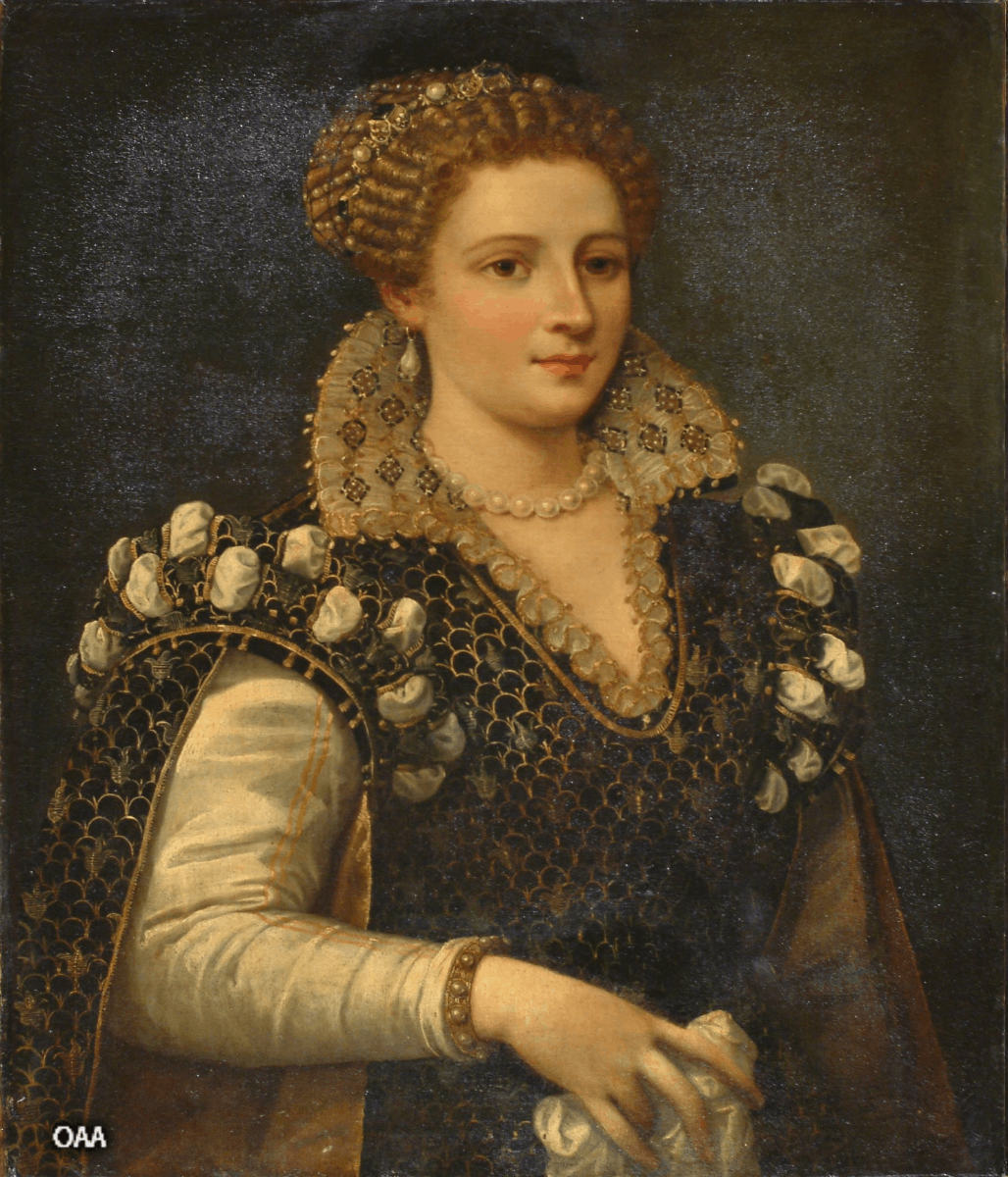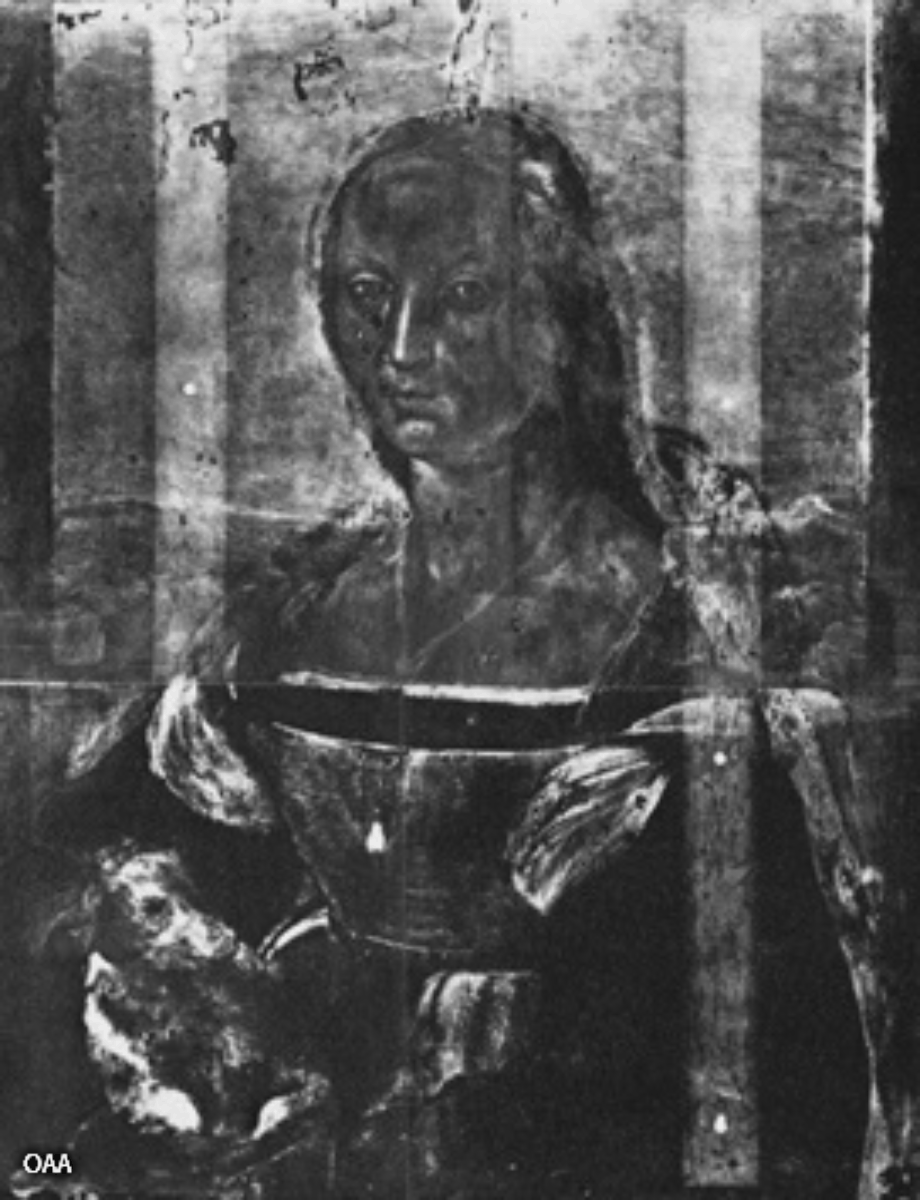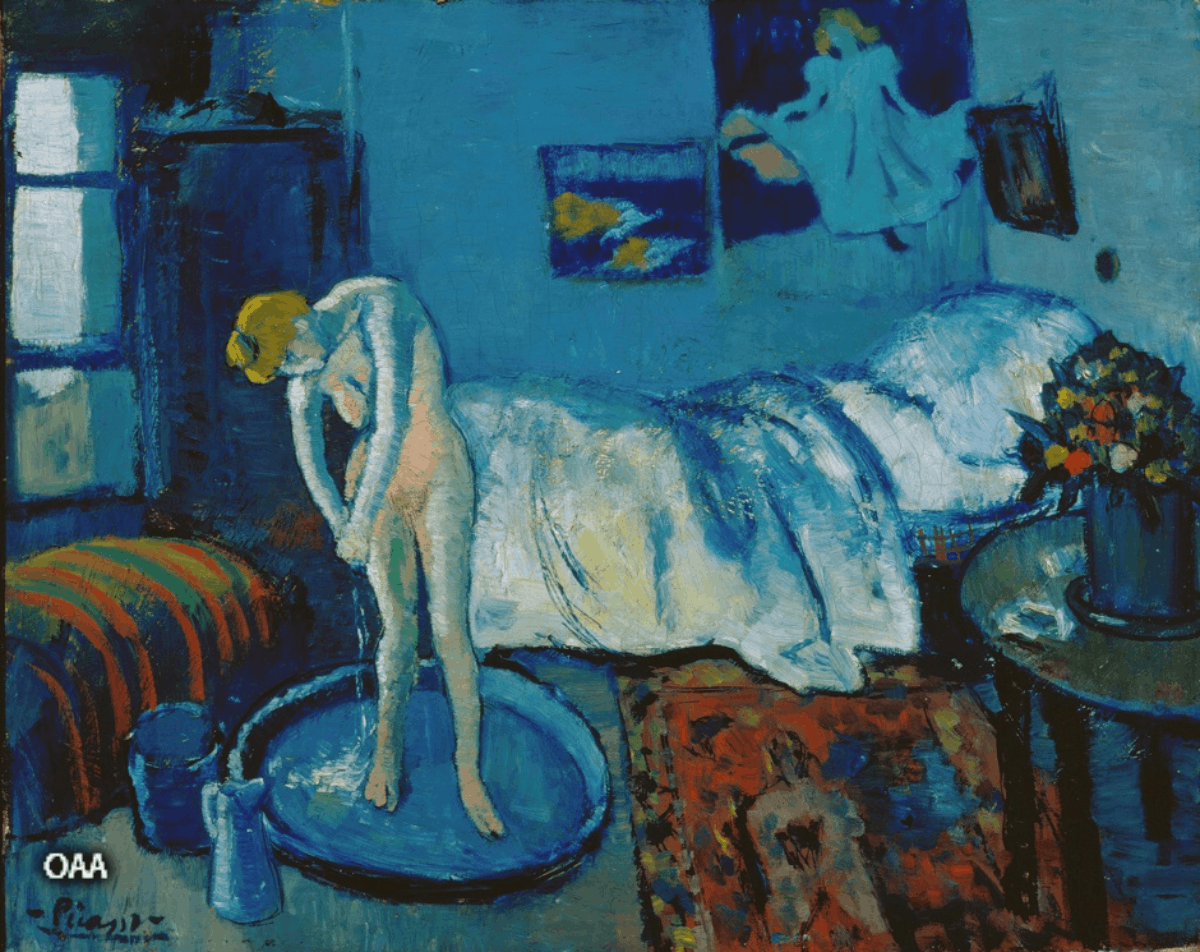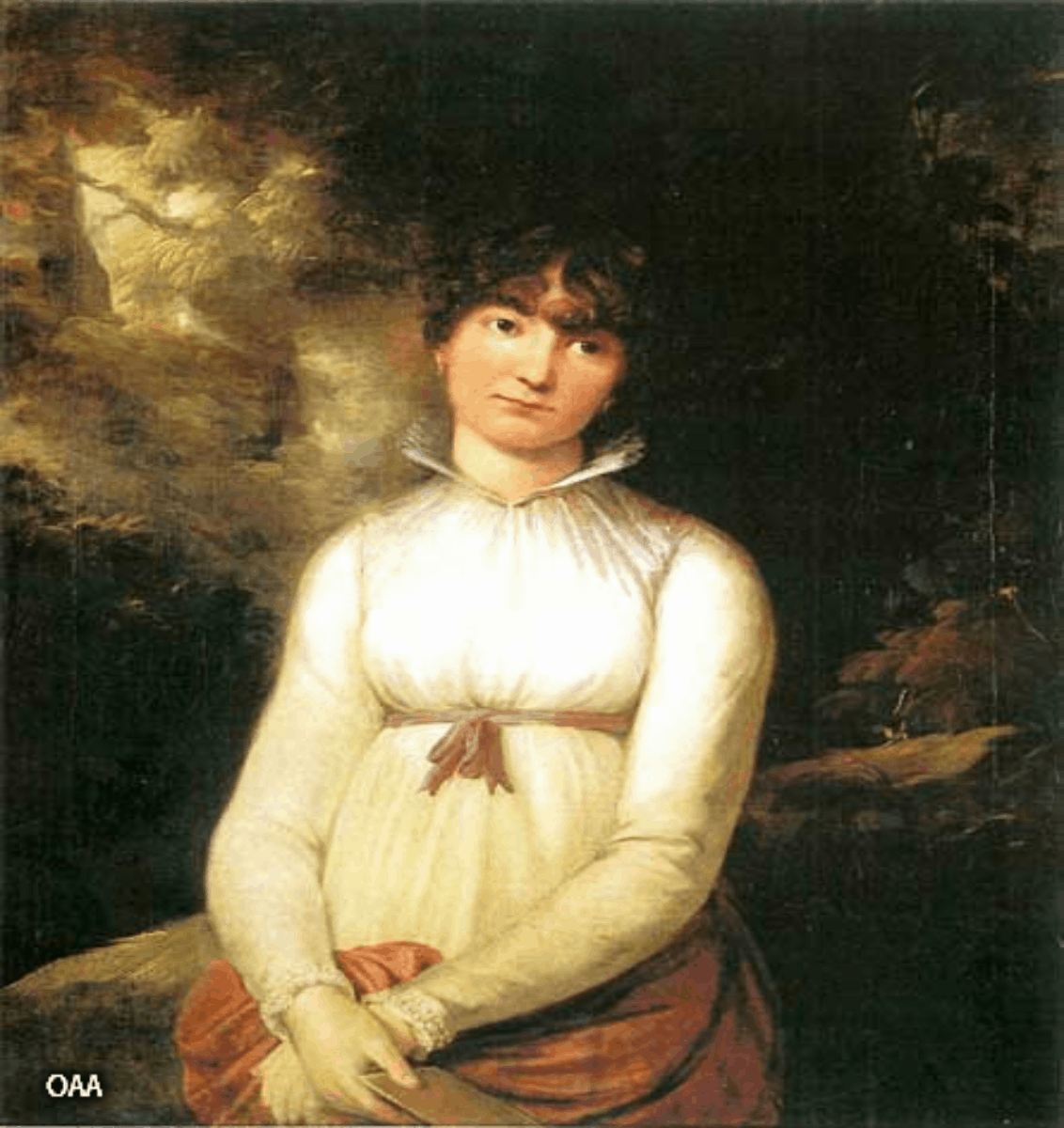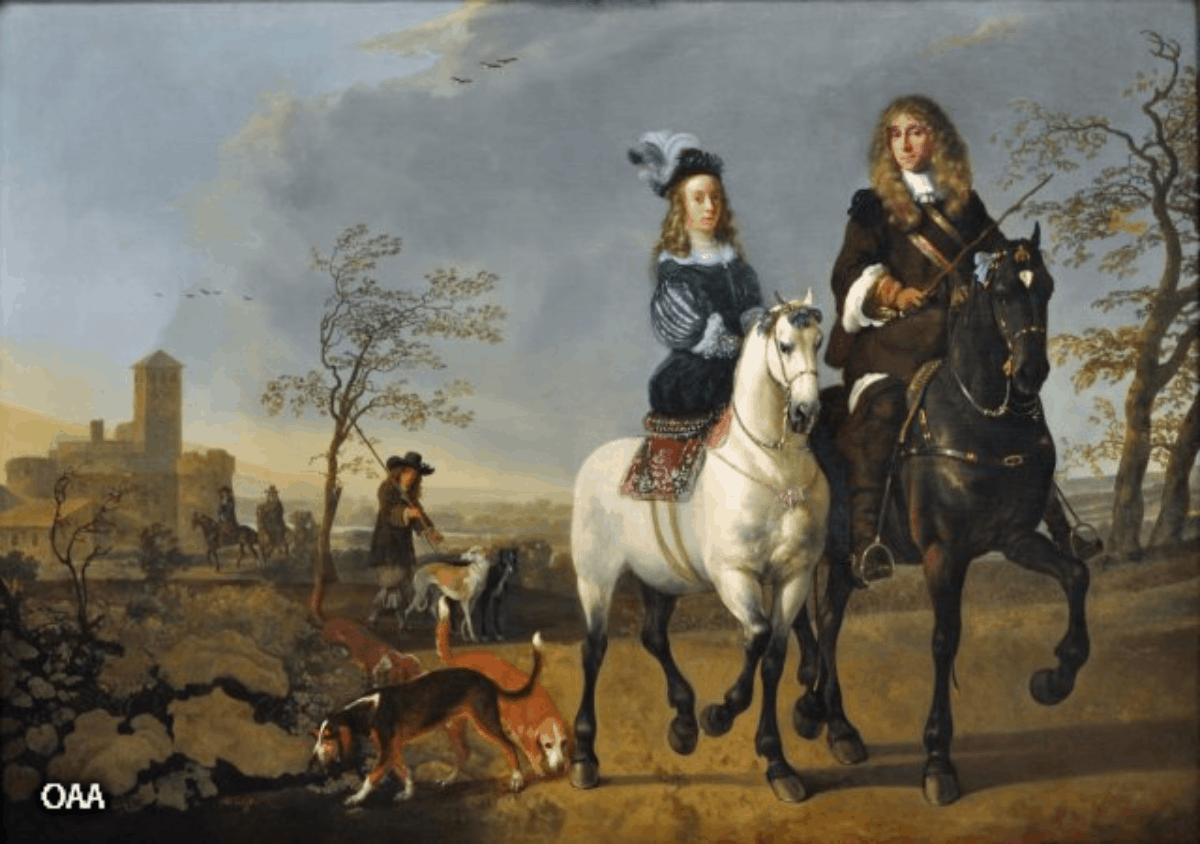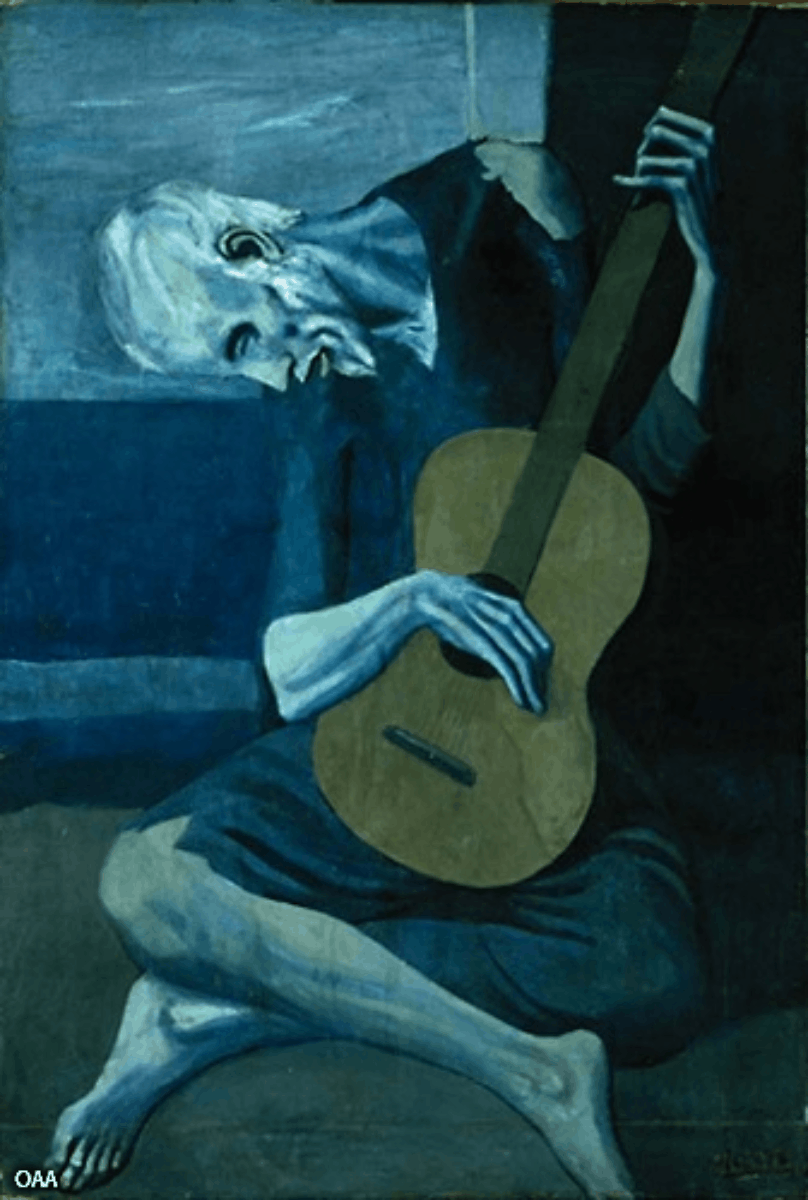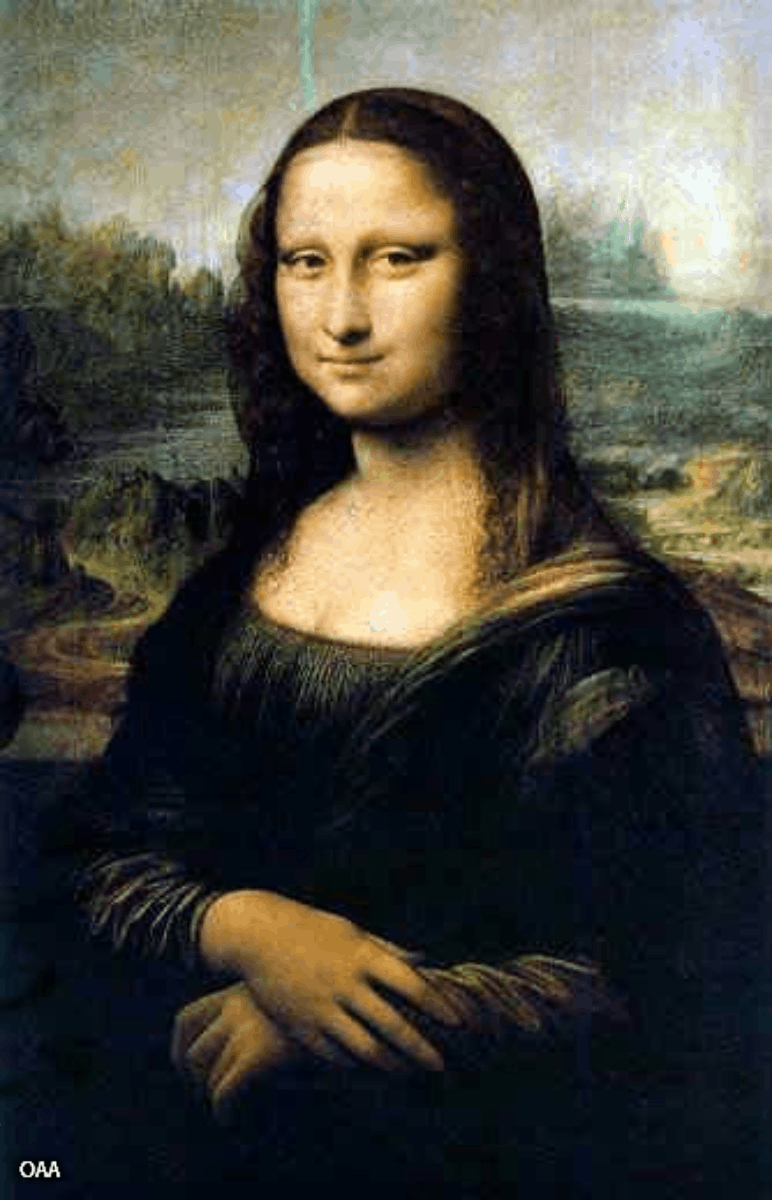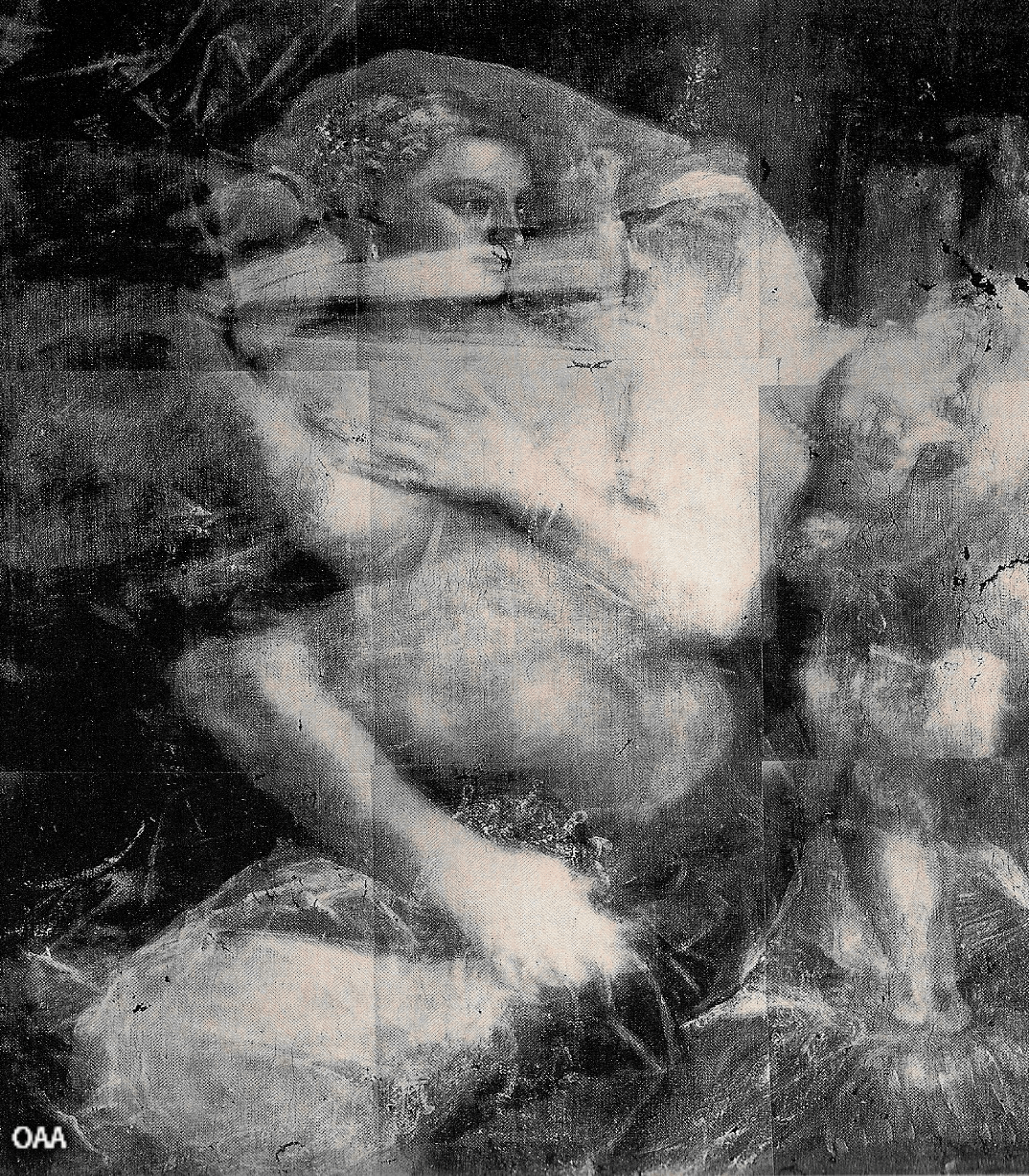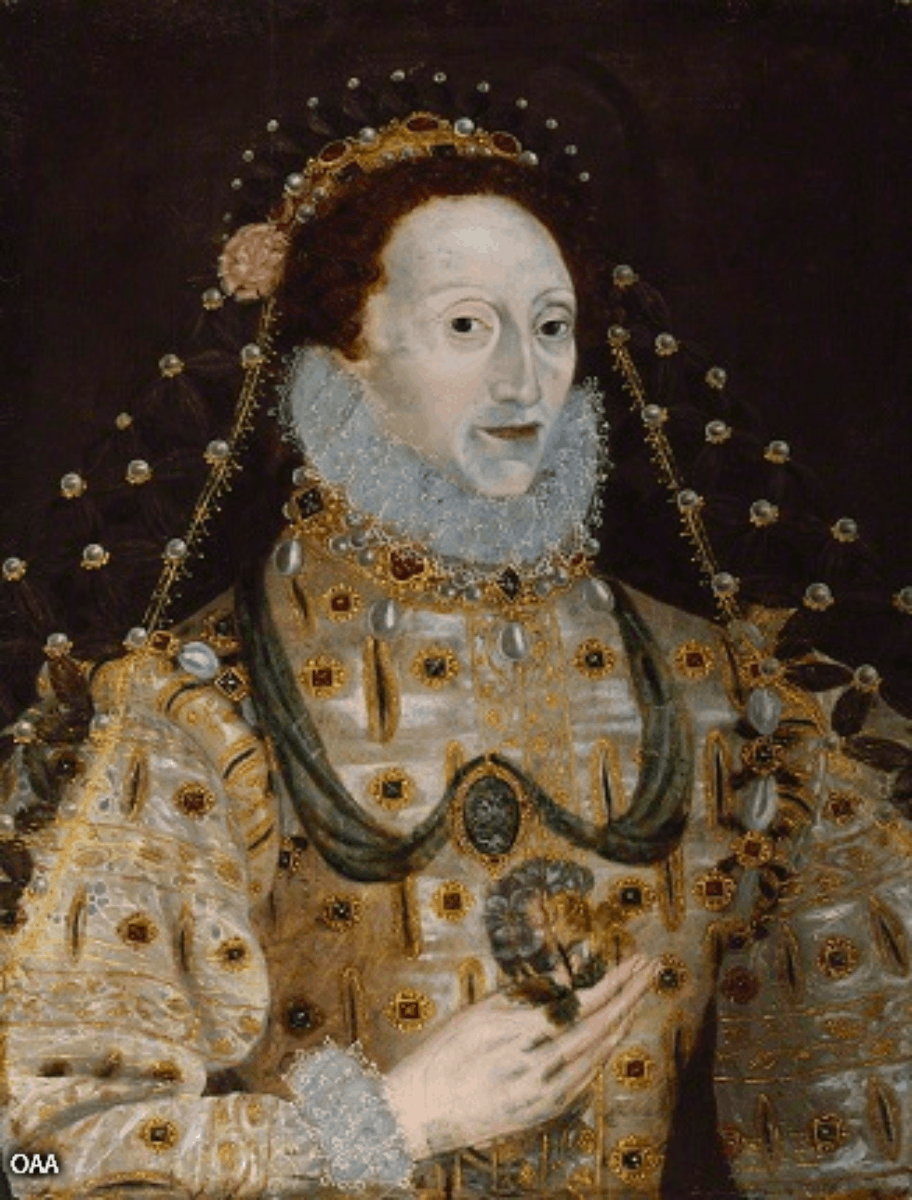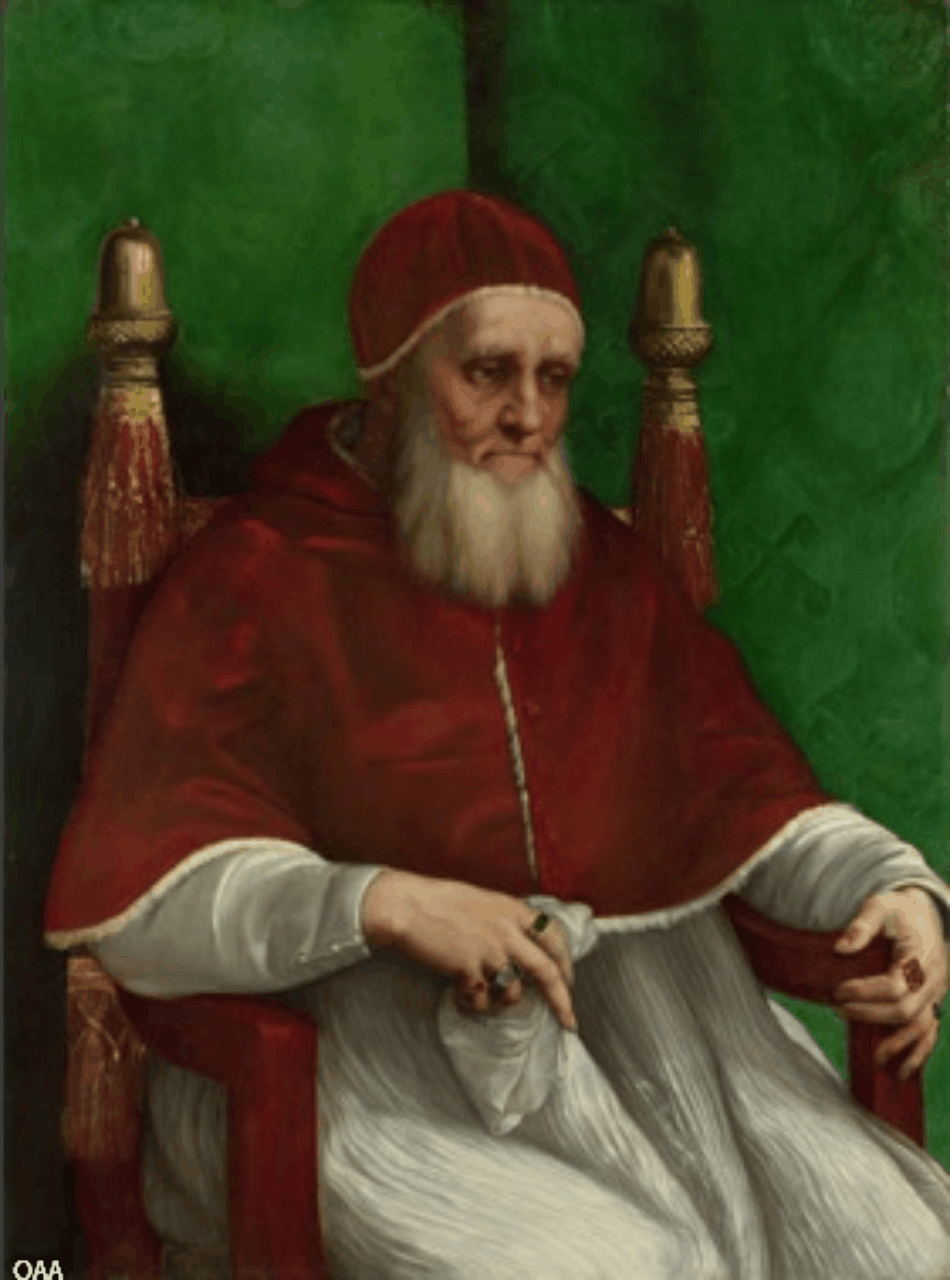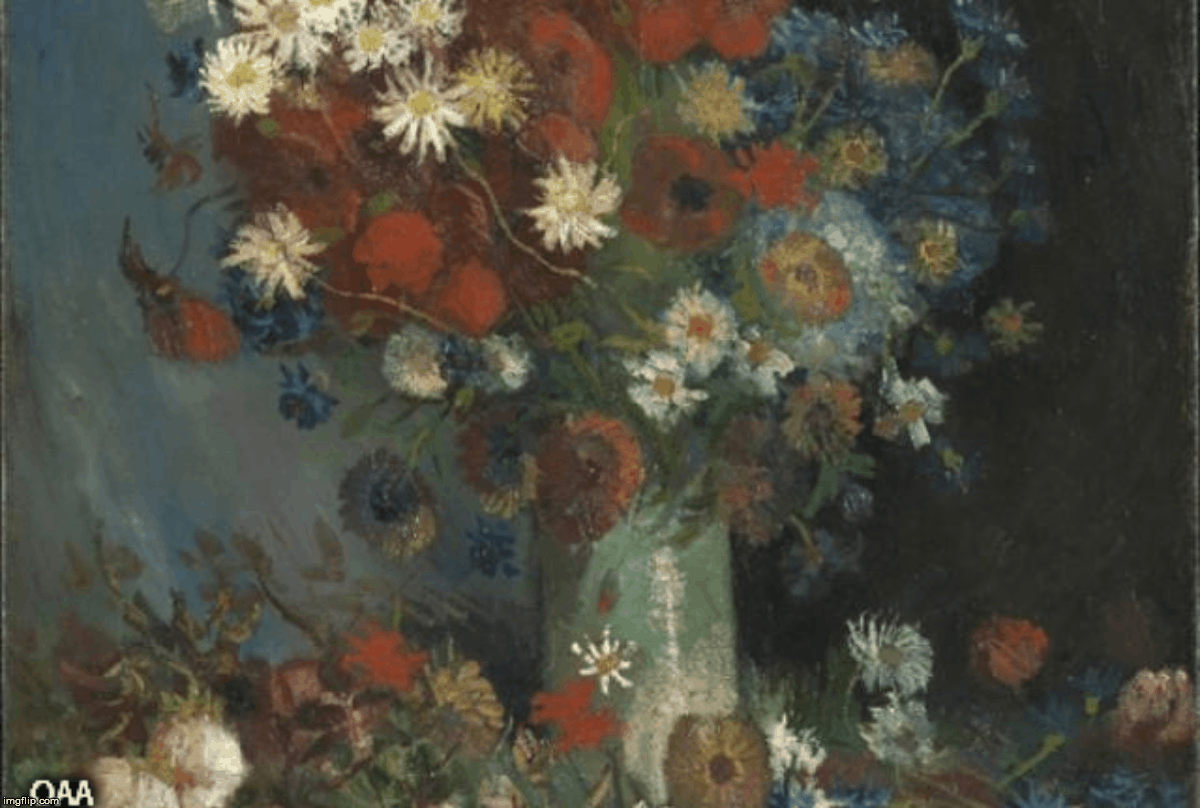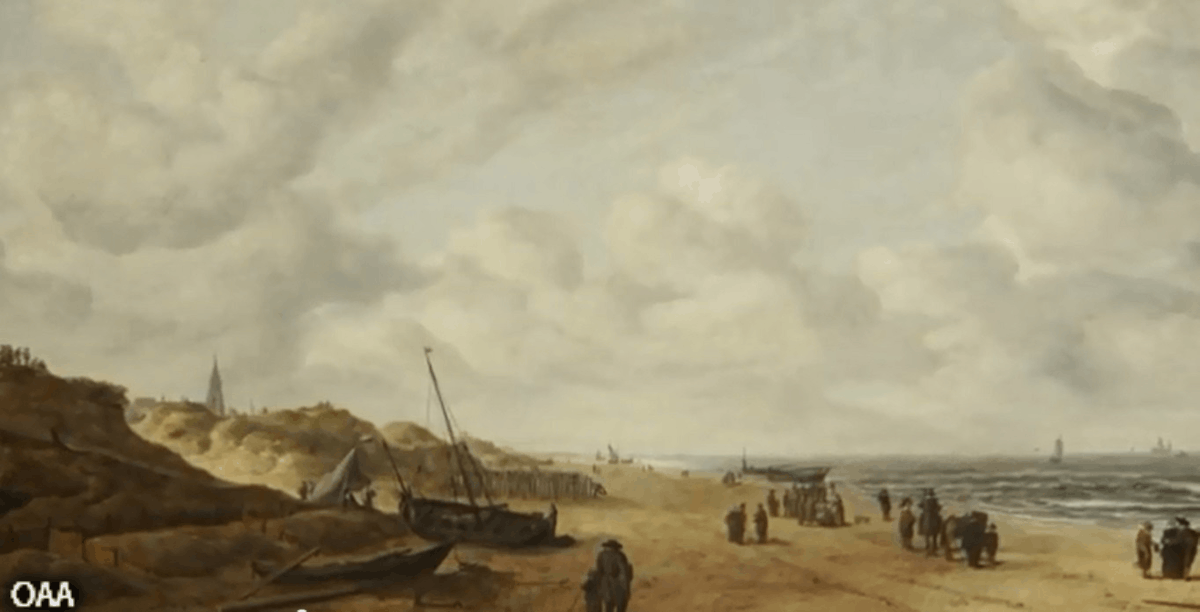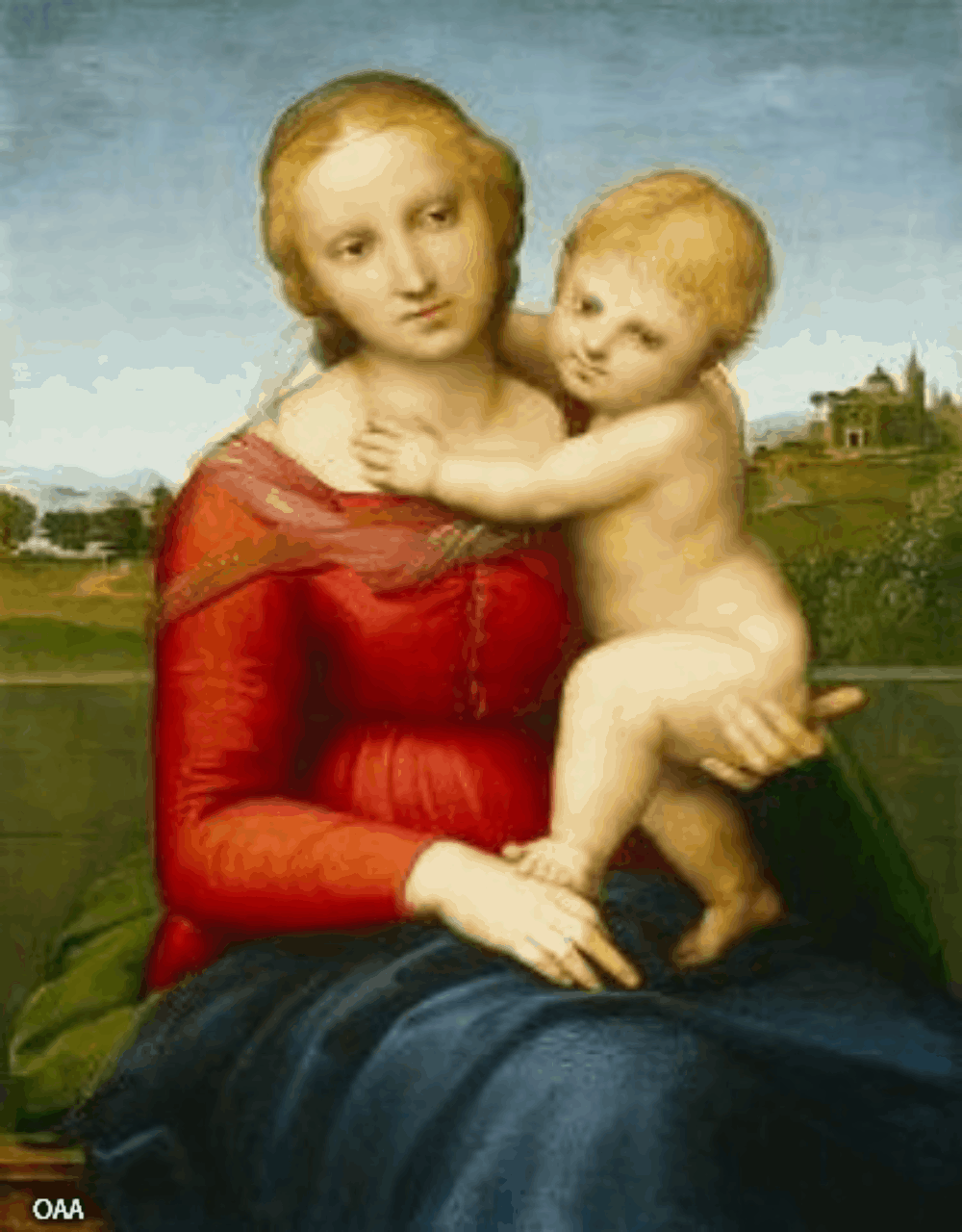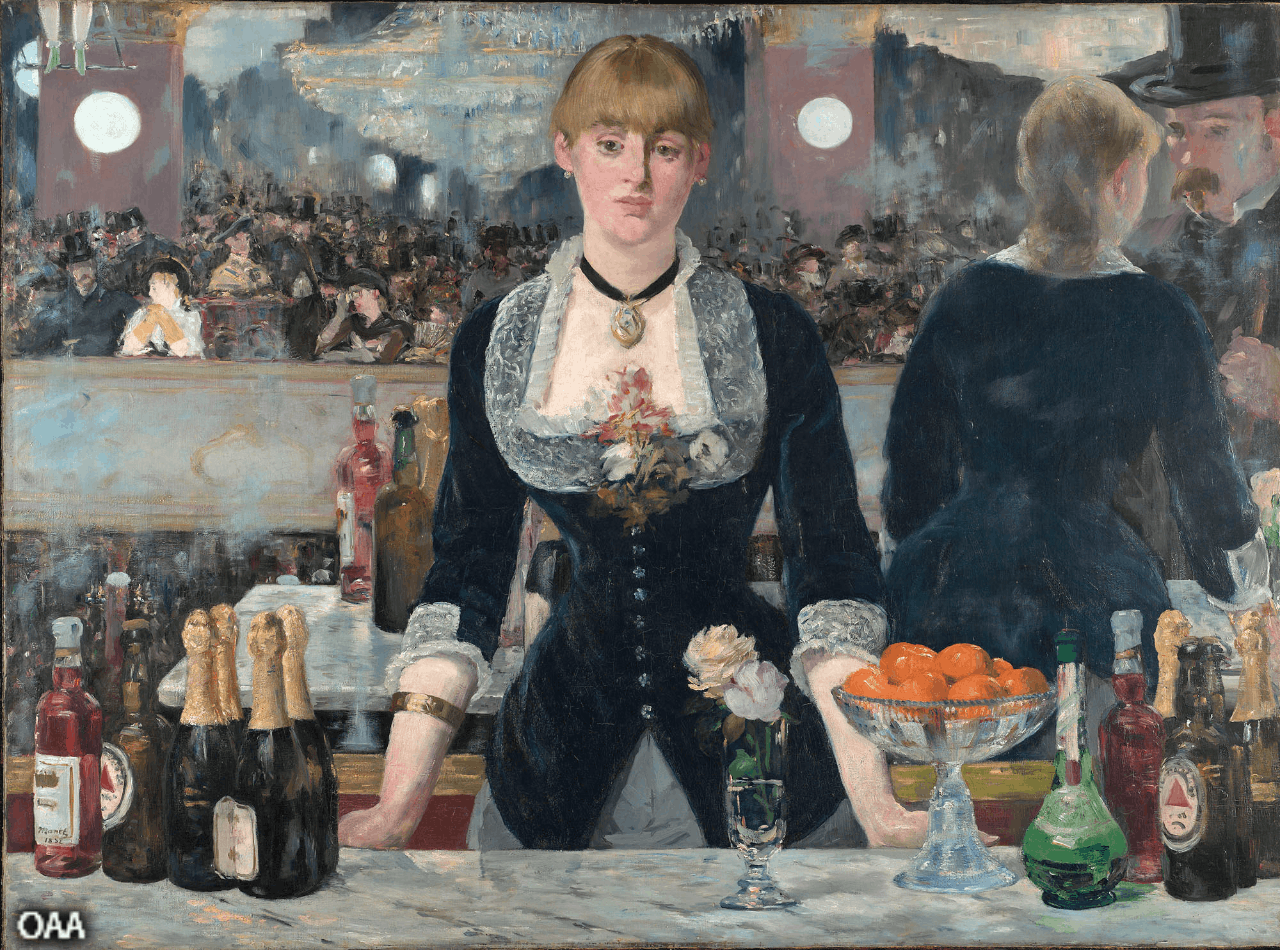A painting can tell you a lot about the subject, the artist and the time and place it was made. Sometimes, they seem like perfect windows into another world. But what about how they were made? A painting is meant to be seen as a finished product, and the process of their creation is largely lost.
Now, thanks to x-rays, multi-spectral imaging and laser scanning, we can see a painting’s past. The revisions, mistakes and edits are revelaed.
Because of that, sometimes some interesting history is discovered as well.
Isabella Medici gets a makeover.
Because of its style, the Carnegie Museum of Art thought this Medici portrait was a fake. When it was x-rayed, however, it was found that the painting was actually from the Renaissance–the lower layers, anyway. During the Victorian period, someone decided to give Isabella some reconstructive surgery to make her more attractive to Victorian-era viewers. The real Isabella is underneath, and the more golden-tinged painting is the later “improvement.” As part of a conservation effort, the Museum removed the Victorian addition, so the real portrait can be seen once more.
Evolution of a unicorn
The unicorn Raphael’s Lady With a Unicorn has been a favorite subject of historians for a long time, who have posited many theories about its meaning. A look at the underpainting, though, reveals that it began life as a regular old lapdog.
A finally visible portrait
Even before x-ray technology, it was suspected that Picasso’s The Blue Room was painted on a recycled canvas due to the texture of the brushstrokes. An x-ray reveals that there is a portrait of a man underneath. He was likely a friend of Picasso’s, but his identity remains unclear.
Old girlfriend
Phillip Otto Runge’s portrait of his wife, Pauline, hides what might be an old flame. Underneath Pauline, there’s a second face of a different woman with blonde hair.
A change of clothing
Before he opted to dress his sitters more casually, Aelbert Jacobsz Cuyp had them in formal military attire, which included some impressive headwear.
Another hidden portrait
Underneath Picasso’s Old Guitarist is a painting of a young girl pulling an ox. It appears that Picasso didn’t care for the old painting and decided to repurpose the canvas.
The secret of Mona Lisa
The Mona Lisa has been the subject of much intrigue, but it turns out, the mysterious lady isn’t actually hiding anything. The painting’s lower layers reveal an adjustment of her hairline and that’s pretty much it. No da Vinci code here.
Keep the arm
Titian’s Venus With a Mirror was painted over a double portrait of some unknown people. Reusing a canvas is resourceful, but Titian took reusing to the next level and even incorporated one of the original figure’s arms into Venus.
Elizabeth I usurps a painting
This portrait of the famous monarch covers up another portrait of an unknown lady. Given the drama that followed the royal family, there may well be a sinister story behind this one.
Haunted pope
Look over Pope Julius II’s right shoulder in the x-ray of this Raphael painting to see a ghostly face that also kind of looks like Spiderman. It’s actually part of the original background, which was a patterned wallpaper.
Artists get homework, too
Underneath Van Gogh’s still life is a study of two boxers. This original image was actually a homework assignment from his art school days.
No dead whales, please
The previous owner of this painting made a request–take out the dead whale. The beached whale was only discovered later, by a restoration team, in this Hendrick van Anthonissen beach scene.
Crabby Madonna
The serene face of Raphael’s Madonna hides an earlier, crabbier one; maybe Jesus was colicky that day. As the painting progressed, though, Raphael lightened her mood, likely because this would be more appealing to patrons.
A new ‘do.
The bartender in Edouard Manet’s painting had, at one point, a long braid. You can see it against her black jacket in the reflection behind her. Evidently Manet didn’t like it, though, and changed her hairstyle in the final version.
These incredible new ways of looking a paintings can teach us a lot about the artists and their worlds. The next time you go to a museum, consider that every painting might be hiding a story under its surface.
